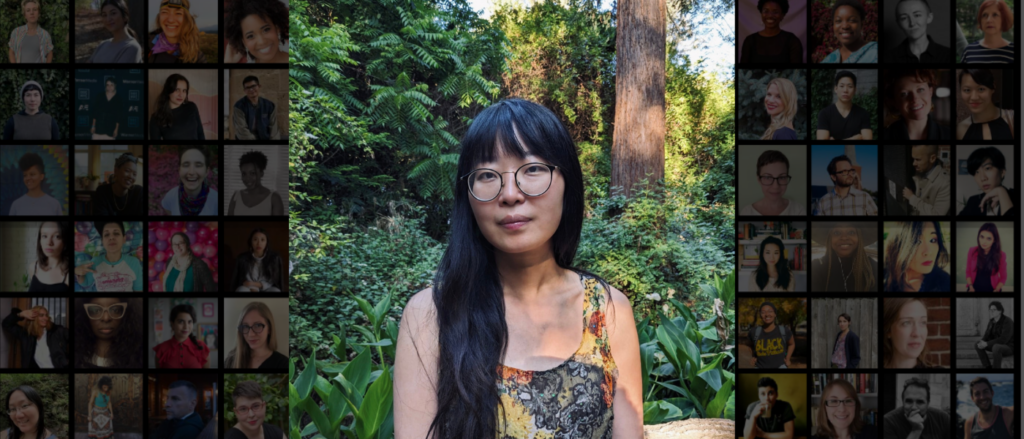Now open for submissions from June 19 – July 18.
Xu Li is one of our four editors-in-chief for our 2024 Community Anthologies. You can read more about the program here, about the 2024 cohort here, and how this program originally came to be here. Below is the call for submission for Xu’s anthology, On Endings, as well as what she is looking for in submissions.
“This anthology invites a dwelling in ending(s). An ending can be a material one, a manner of re-orientation, or a point of private and public departure and transformation that carries itself, despite itself, onward. What are the different gestures an ending can hold? What are its passages, its fugitivities? Its escalations and unmakings? Its endurings?
I’ve been thinking a lot about endings, lately; not a singular volta, but of turning and turning — Aditi Machado in The End asks, “and now? Am I changed? Is the world? I’ve lifted myself off the page and what sort of gesture is this?” As poets, we often name an ending as where a poem has arrived to its last lines, its keenest revelation, but a multitude of endings may live in a single poem or piece of writing as it moves through its lyric. A poem or an essay can end and end again.
Solmaz Sharif, too, has shared that for her own writing, “Marx has always been a huge influence on me: the point isn’t to think about the world, but to change it. As a writer, my addendum is that the point of literature isn’t to just understand the world, but to end it.” As Israel’s U.S.-backed genocide in Gaza continues to its 256th day, there’s the endings that we daily act toward: the end of the decades-long, punishing occupation of Palestine, of the same occupying forces in the U.S. Here is a space for our polyvocal movement, our enduring refusals against the current capitalist and imperial order, of all the grammars that lift a colonial world into sequence.”
To submit, please visit our Submittable page here. This call is open to all types of writers and artists (hybrid included). In terms of genre/form, Xu is specifically looking for poetry (long(er) poems especially encouraged), lyric essays, and creative non-fiction.
Xu Li is a writer and educator born in Beijing and raised in southeast Michigan. She received her MFA in poetry at Arizona State University (‘23) and was a recipient of the 2023 Kathryn Blair Swarthout Fellowship. She previously served as the poetry editor for Hayden’s Ferry Review, and alongside writing, has taught and mentored K-12 and university students in literature, composition, and creative writing. She is currently based in Los Angeles.
